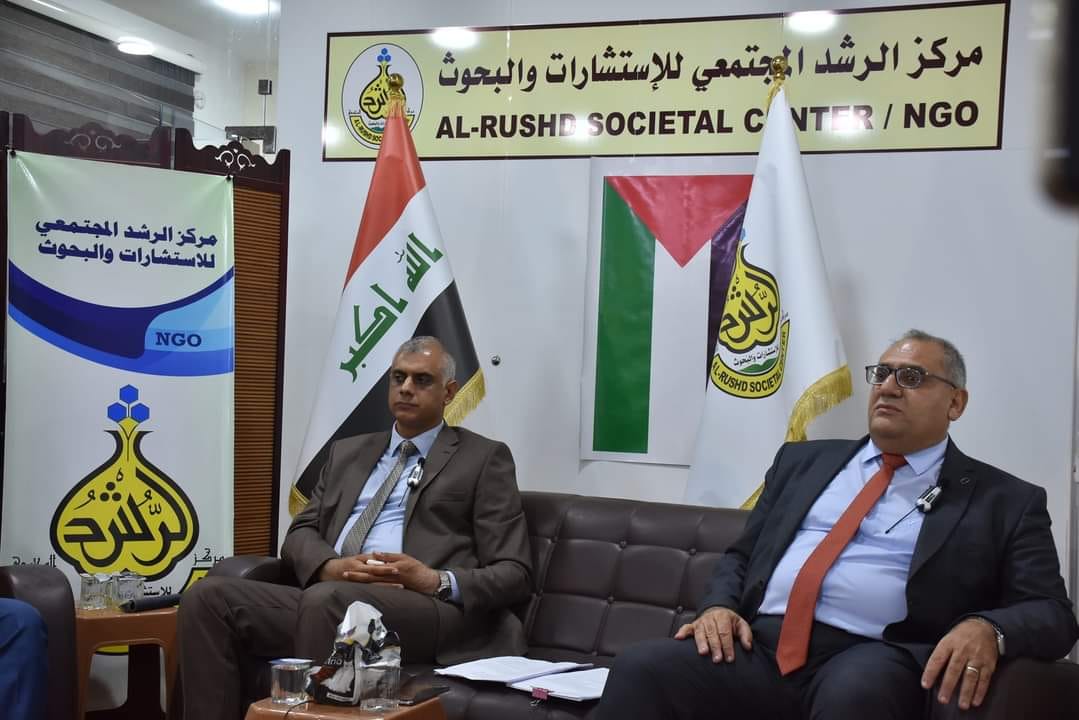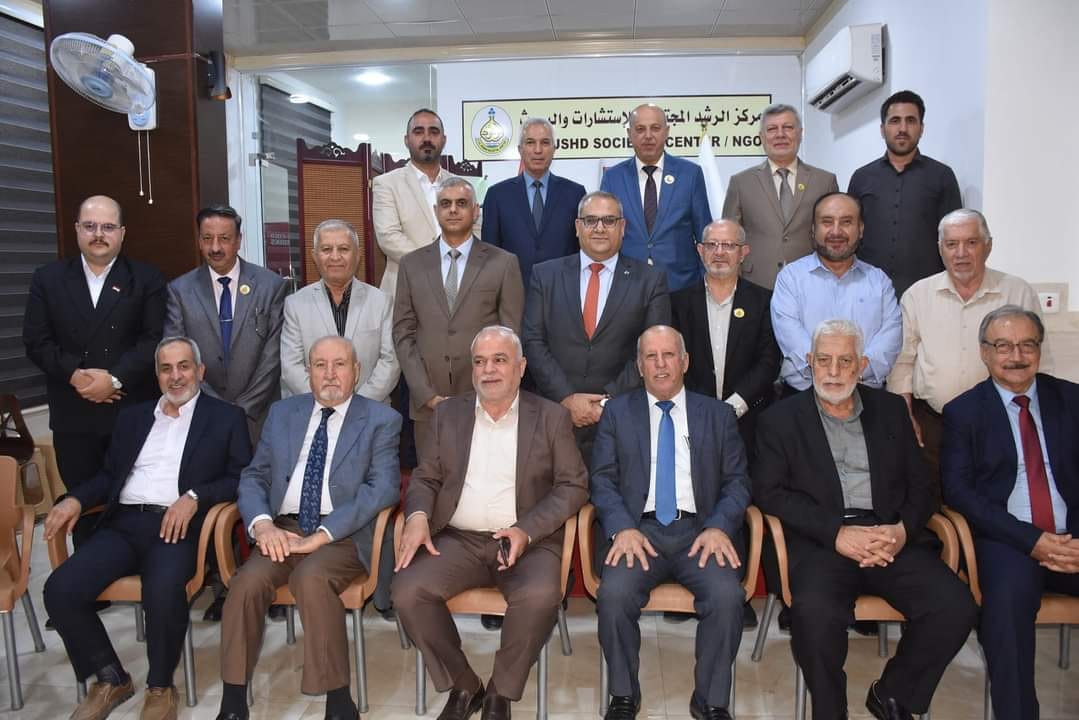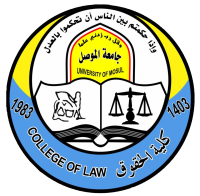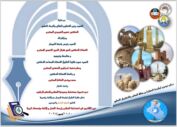25 October، 2023
Dialogue session
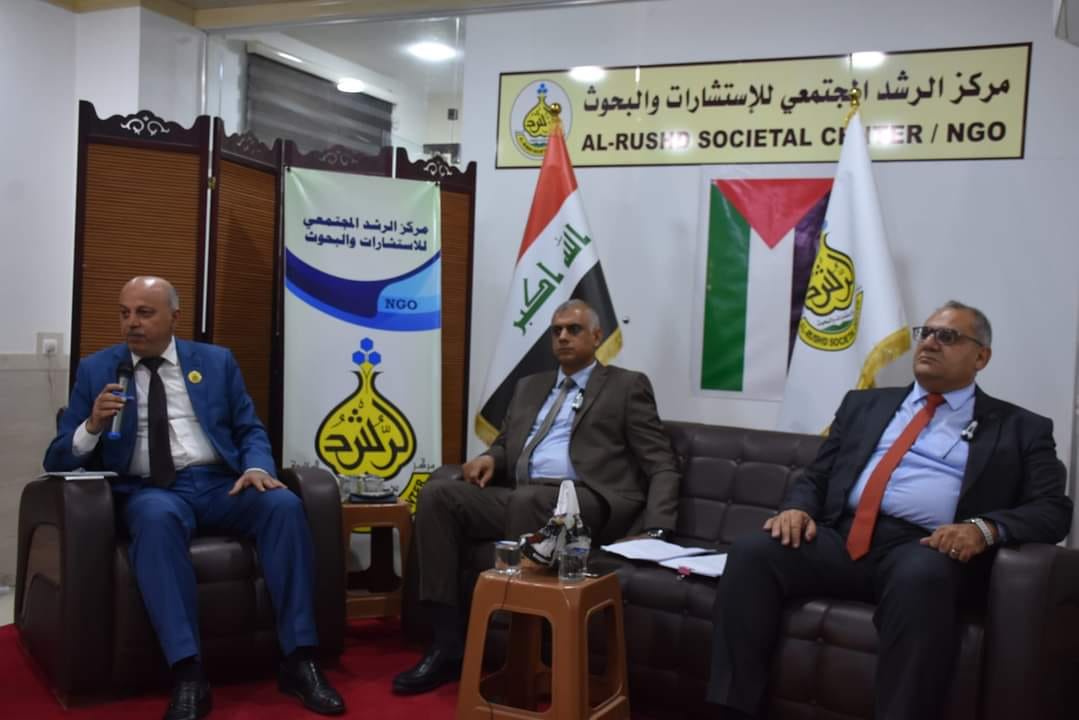
In the interest of the Presidency of the University of Mosul, represented by Professor Dr. Qusay Kamal Al-Din Al-Ahmadi, President of the University of Mosul, to build bridges of scientific communication and cognitive interaction with the rest of the scientific and research institutions and centers, and based on the plans and programs of the College of Law at the University of Mosul, represented by Assistant Professor Dr. Wissam Nemat Ibrahim Al-Saadi, Dean of the College and the members of the College Council. By motivating the college’s scientific and administrative staff to participate in activities and events that have a role in developing capabilities, developing skills, and working on legal awareness in its various specializations, Professor Dr. Raqeeb Muhammad Jassim, one of the teachers of the Human Rights Law branch in our college, participated in the dialogue session entitled (The Flood of Al-Aqsa – A Legal-Political View). ) which was held by the Al-Rushd Community Center in Nineveh Governorate and its sessions were moderated by Assistant Professor Dr. Osama Ahmed Muhammad, one of the teachers of the Public Law Branch in our college, at the beginning of which he welcomed the distinguished guests, referring to the massacre committed by the usurping Zionist occupation authorities by bombing the Baptist Hospital in the Gaza Strip, which killed approximately 500 people. A martyr, in addition to the inhumane measures taken against the people of the Gaza Strip by cutting off the powers of the usurping entity, water, electricity, and means of life against the besieged residents inside the Gaza Strip. The session was based on two axes, the first of which was legal and the second was political. Dr. Raqeeb Muhammad Jassim addressed the legal axis in which he stated that any armed conflict is governed based on The provisions of general international law have rules and regulations that the two parties to the conflict must observe, referring to the basic approaches that will be discussed in the session, in which he explains the concept of the civilian person, the military person, civilian objects, war crimes, and the rules and provisions for the protection of civilians in light of the four Geneva Conventions, as well as the protection of civilians and civilian objects and violation of powers. The entity that is usurping the rules for the protection of civilians and civilian objects, pointing to the solutions that can be resorted to in accordance with the provisions of international law, such as trials, convictions, and moving the file at the criminal level, indicating the extent of the increasing danger that any armed conflict is witnessing at the present time as a result of the great development in the means and methods of conflict due to scientific development, as well as The second axis dealt with the political aspect of the Al-Aqsa Flood Operation, in which Dr. Tariq Muhammad Tayyab Al-Qassar, Dean of the Faculty of Political Science, explained the current political point of view and future strategies related to the political scene in the Gaza Strip after the Al-Aqsa Flood Operation, addressing its repercussions on the Arab and popular levels, explaining the current arrogant philosophy of the leaders of the Zionist entity. And the extent of its connection with their ancient philosophy, addressing the justifications for the Al-Aqsa Flood Operation, its results, and future scenarios for what comes after it from the point of view of global thought and international politics, addressing the basic goals of the Hamas movement and the extent and influence of it by international events after 1990 and its relationship with the rest of the Palestinian organizations and the Palestine Liberation Organization. The session witnessed a distinguished presence of academics, researchers, and those interested in both matters. The legal and political figures who asked many questions and inquiries about the subject of the session were answered in detail by those in charge of it.